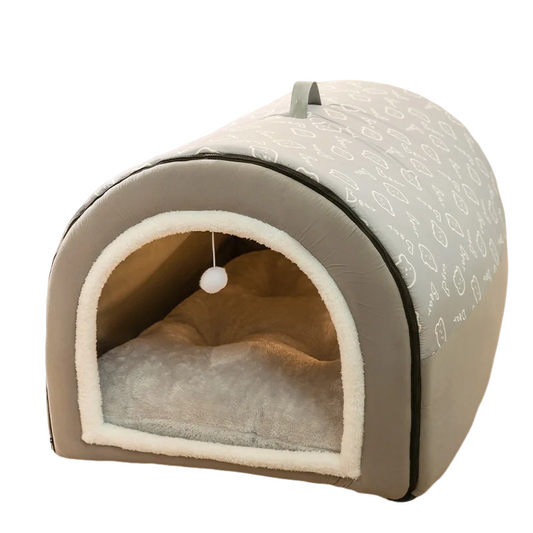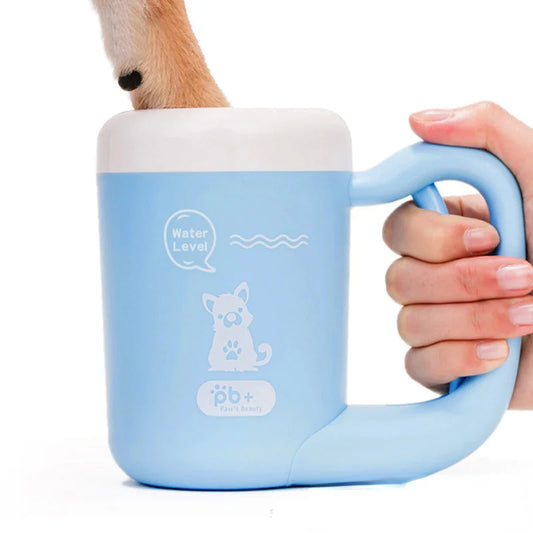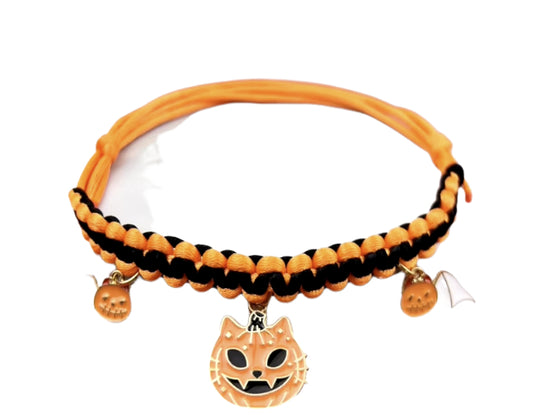
Pet Nutrition: Exploring Personalized Diets and Future Trends
Share
Introduction
Pet nutrition has advanced significantly, and personalized diets are becoming a central approach to improving pets' health. With different nutritional needs based on age, breed, and health conditions, modern research shows how targeted diets can prevent obesity, manage chronic diseases, and boost overall well-being. Below, we explore in detail how personalized nutrition can enhance your pet’s quality of life, and what trends are shaping the future of pet health.
1. High-Protein Diets: Supporting Health and Vitality
A high-protein diet is essential for maintaining pets' health, especially for cats and dogs. Cats, as obligate carnivores, require animal proteins to meet their nutritional needs, particularly amino acids like taurine and lysine. These nutrients are crucial for heart function, immune support, and muscle maintenance. In dogs, high-quality proteins help maintain muscle mass, repair tissues, and support immune function. Studies indicate that protein-rich diets can help dogs maintain optimal weight, prevent obesity, and provide sustained energy for their active lifestyles.
Recommendations:
- Choose high-quality protein sources: Look for pet foods with animal-based proteins like chicken, beef, or fish to meet your pet’s nutritional requirements.
- Balance with healthy fats: Alongside protein, pets also need healthy fats to provide energy, especially active breeds that require extra fuel for exercise.
2. Managing Carbohydrates and Weight Control
Excess carbohydrates in pet food are a leading contributor to obesity, particularly for indoor pets with lower activity levels. Carbohydrates convert to glucose, and any excess can be stored as fat, leading to weight gain. Research shows that reducing carbohydrate intake while increasing protein and fat levels can significantly reduce the risk of obesity-related diseases such as diabetes, heart disease, and arthritis.
Weight Management Tips:
- Limit high-carb foods: Choose pet food with low carbohydrate content, avoiding grains and high-sugar ingredients.
- Regular weight checks: Monitoring your pet's weight and adjusting their diet as needed helps maintain a healthy weight and prevents chronic illnesses.
3. Gut Health and the Role of Probiotics
The role of gut health in pets’ overall well-being is gaining more attention. A balanced gut microbiome supports not only digestion but also immune function. Research suggests that probiotics—beneficial bacteria—can help balance the gut flora, especially during times of stress or after antibiotic treatment. Probiotics aid in digestion, prevent inflammation, and reduce common gastrointestinal problems like diarrhea.
Pets with a healthy gut microbiome tend to have better digestion, shinier coats, and improved immune responses. Long-term probiotic supplementation has been shown to increase pets' resistance to infections and enhance their overall well-being.
Probiotic Suggestions:
- Look for probiotic-rich foods: Incorporate foods or supplements containing probiotics into your pet's diet to promote digestive health.
- Fiber intake: Ensure your pet consumes fiber-rich foods to support regular digestion and maintain a healthy gut environment.
4. Managing Chronic Diseases with Personalized Diets
Personalized diets are crucial for pets managing chronic conditions like diabetes, arthritis, or kidney disease. For diabetic pets, diets low in sugar and carbohydrates can help regulate blood glucose levels, reducing the need for insulin. Similarly, for pets with kidney disease, reducing phosphorus and protein intake can lower the strain on their kidneys, slowing disease progression.
Recent research has also emphasized the benefits of Omega-3 fatty acids in managing joint health, particularly in aging pets. Omega-3s help reduce inflammation in pets with arthritis, improving mobility and reducing pain. Antioxidants like Vitamin C and E are also critical in neutralizing free radicals, which contribute to aging and cell damage in pets.
Chronic Disease Management Strategies:
- Select specialized diets: For pets with chronic conditions, consider veterinary-prescribed diets tailored to their specific health needs.
- Omega-3 supplementation: Include Omega-3 fatty acids to support joint health and reduce inflammation, especially for senior pets.
5. Senior Pets: Evolving Nutritional Needs
As pets age, their nutritional needs evolve due to changes in metabolism, activity levels, and health conditions. Senior pets often require more protein to maintain muscle mass and less fat to avoid weight gain. Furthermore, easy-to-digest foods and nutrients like Omega-3 fatty acids, antioxidants, and joint supplements become essential for managing aging-related issues like arthritis, cognitive decline, and weakened immune systems.
Feeding senior pets with high-quality proteins ensures they continue to get the essential amino acids needed to prevent muscle wasting. Additionally, reducing phosphorus and sodium in their diet helps maintain kidney and heart health, which are common areas of concern in older animals.
Senior Pet Nutrition Recommendations:
- Digestible high-protein foods: Choose protein-rich foods that are easy for senior pets to digest, ensuring they maintain muscle health.
- Antioxidant and vitamin supplementation: Provide antioxidants and vitamins to support cognitive and immune functions as pets age.
6. Exploring New Protein Sources for Food Allergies
With the rise of food allergies in pets, researchers are exploring alternative protein sources to address common allergens like beef, chicken, and dairy. Novel protein sources such as duck, venison, and insect protein are emerging as effective alternatives that provide complete nutrition while minimizing the risk of allergic reactions.
In particular, insect protein has shown promise as a sustainable and hypoallergenic option. Not only does it offer high-quality protein comparable to traditional meat sources, but it also reduces the environmental impact of meat production, making it a viable choice for eco-conscious pet owners.
Managing Food Allergies:
- Rotate protein sources: Consider rotating protein sources to reduce the likelihood of your pet developing food sensitivities.
- Try novel proteins: Explore new protein options like insect protein or game meats for pets with known food allergies.
Conclusion
As the field of pet nutrition evolves, personalized diets are becoming a vital component of maintaining your pet’s health. From high-protein meals to probiotic supplementation, these research-backed strategies provide essential guidance for addressing your pet’s unique dietary needs. Whether managing weight, preventing chronic illness, or enhancing gut health, personalized nutrition offers a way to optimize your pet's well-being at every stage of life.
By incorporating the latest nutritional research into your pet's diet, you can help them live a longer, healthier, and happier life.









